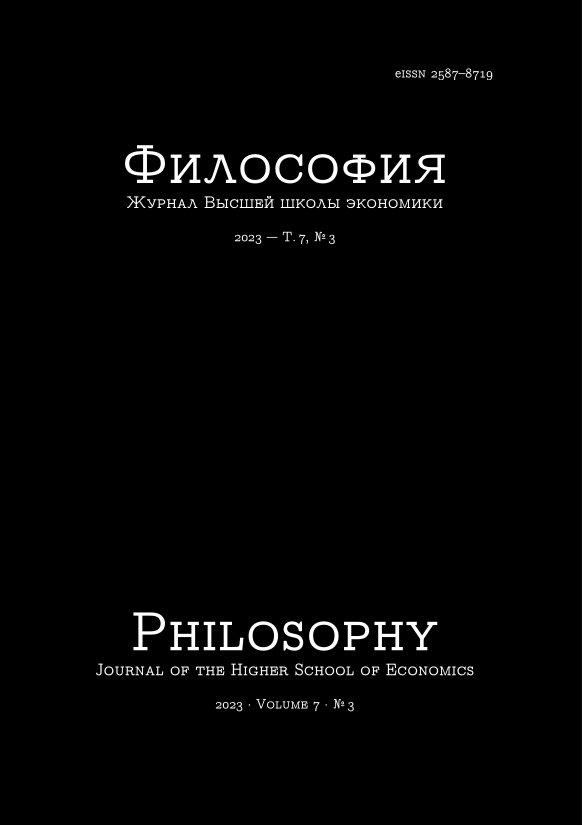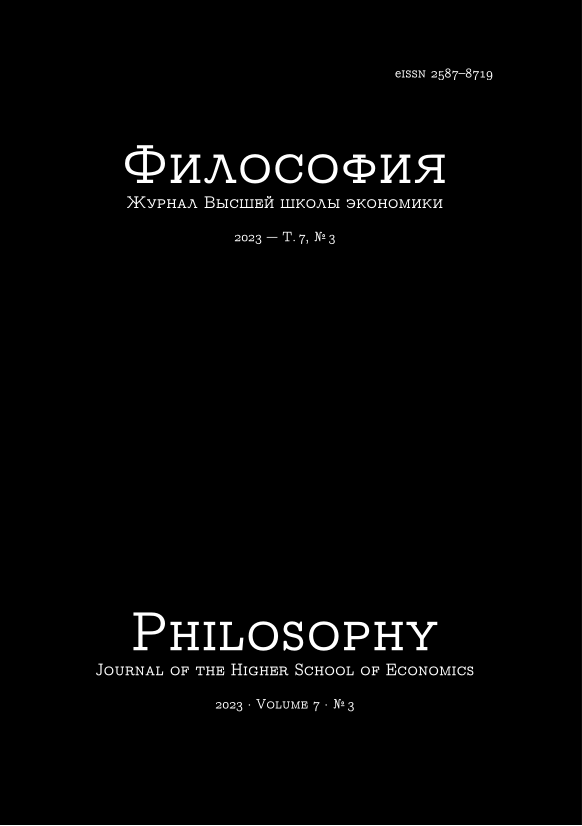
This issue opens with a block of materials related to Alexander Hertzen and his intellectual heritage. Among these, here are Yevgeniy Blinov and Fyodor Gayda’s works. Blinov's article "The Most Independent Man in the World": Hertzen on the Origins and Meaning of Russian Nomadism analyzes Jules Michelet's pamphlet Democratic Legends of the North, Hertzen's response to it and Michelet's subsequent reaction. The author analyzes the problem of freedom, the opportunity to see in Hertzen's reasoning a logic close to the modern search for the potential for resistance to the disciplinary techniques of power among "primitive" communities, and Michelet's characteristic insensitivity to these arguments. Fyodor Gayda, in the article Burden of Responsibility: Alternatives to the Ideological Transformation of Populism in the 1880s offers a non-trivial view of the logic of the ideological transformation of populism, interpreting the crisis of the 1880s as ultimately forming the main directions of the ideological and cultural life of the 1890s – 1910s, in particular - the ideological framework for the culture of Silver Age.
The issue continues with a block of articles related to "Philosophy between the Enlightenment and the Empire." Here are articles by Anastasiya Ugleva, Artem Krotov, Mikhail Golubov and Ivan Kurilovich. Ugleva's paper analyzes the revolutionary ideas in the field of public education of the 18th-century French thinker Nicolas de Condorcet as the fundamental basis for the political and social transformations of contemporary France and, at the same time as an exceptional example of the formation of popular sovereignty through the construction of a unique scientific and educational paradigm aimed at enlightening and educating citizens, capable of autonomous judgment and socially responsible action. Krotov's article analyzes the main provisions of the political program of Napoleon III, affecting his understanding of the meaning of history, and Golubev and Kurilovich consider the problem of heteronomy of the subject of self-consciousness within the framework of the philosophical project of the French neo-Hegelian Alexandre Kojève.
Helena Knyazeva’s article discusses creative education and creative teaching as the foundation of modern educational policy focused on a sustainable future. Alexander Marey turns to analyze ideas about power in historical research, and Maria Marey writes about the concept of judgment as a political problem.
The issue continues with a discussion around Valentin Bazhanov’s article about artificial intelligence, Big Data technology, and the features of the modern political process, as well as responses to the article by Sergey Nikolsky, published in June of this year.
In the rubric "Translations and Publications," we publish two materials. The first is a memoir sketch by Irena Zhelvakova, the creator and director of the Herzen House Museum in Moscow (Department of the V. I. Dahl State Historical Museum of Literature). Written with lively humor and a keen eye, it makes it possible to feel the density and diversity of the cultural and intellectual life of Moscow in the 1950s – 1980s, the atmosphere in which new things take place, directly influencing us to this day, an appeal to Herzen, Decabrist, and then populist and Narodnaya Volya issues. The publication is accompanied by an introductory note by Andrey Teslya, and he also has a review of Letters to Brother Anthony, published in 2021 by the PSTGU publishing house by Georgy Florovsky, covering the period from 1946 to 1968. Florovsky's first major scientific work was a study of the paths of the intellectual development of Alexander Herzen - and attention to Herzen did not leave Florovsky throughout almost his entire intellectual life, in understanding him as one of the key figures not only of the Russian but also of the pan-European 19th century.
The second text is a partial translation of Hobbes' Leviathan, i. e., chapters 17 and 18, performed by Elizaveta Stoliarova and edited by Alexander Marey. In these chapters, Hobbes describes the Leviathan's formation as a result of the agreement entered into by people and discusses the necessary rights and prerogatives of the highest authority in an established civil community.
Among the book reviews, in addition to the already mentioned text by Andrey Teslya, there is a review by Mariia Stenina of Aurélie Névot’a book Le ressac de l’altérité. Marc Richir et Pierre Clastres à l’épreuve de l’ethnologie, Oleg Aurov on Discourse on Dictature by Donoso Cortes and Anna Lazareva on the book by Christina Gschwandtner Welcoming Finitude: Toward a Phenomenology of Orthodox Liturgy.
The issue ends with a report on the II International Colloquium, organized by the RANEPA Institute within the project "Intellectuals and Power" framework.






